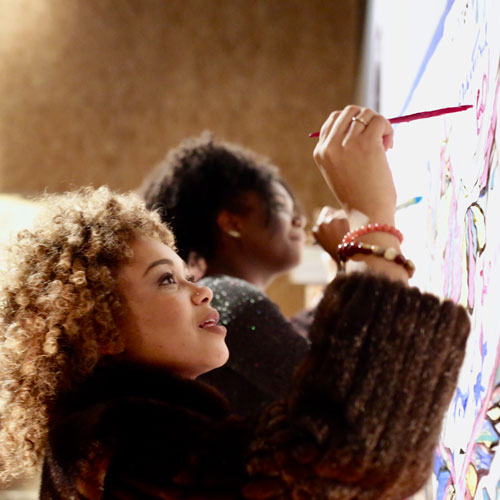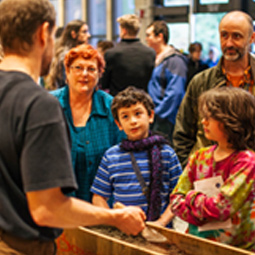Perhaps the most remarkable impact of Julie’s extensive career is the manifestation of the New Burke. Since becoming the Executive Director, she embarked on building a flagship museum of natural history and culture for the Northwest. It came to life in 2019 and is truly unlike any other museum by breaking down traditional museum barriers and inviting visitors to be part of a working museum through its visible collections, labs, and workrooms. Her remarkable achievement has inspired other museums to embrace the Burke’s “inside-out” model as they plan their own new buildings and updates.
“Every single decision that was made to build the New Burke was done with focus on flexibility for the future,” Julie Stein said. “It was built so the space could adapt to the changing needs of our collections and exhibits. I can certainly attest that I’ll be retiring after a fulfilling career. And I’m confident that our next Executive Director will continue to build on this strong foundation, to advance the growing need for digital capabilities, to chart the course for the future, and to uphold the Burke’s mission to care for and share natural and cultural collections so all people can learn, be inspired, generate knowledge, feel joy, and heal.”
Julie’s expansive impact and career legacy goes even further. She’s a trailblazer with countless contributions to the fields of archaeology, museums, and teaching. Julie began her career in the 1980s as one of the few women geoarchaeologists in the world. Over the years, Julie’s mentorship of archaeologists, students, researchers, and museum professionals inspired many people—especially women balancing family and career. Raising infants of her own at a time when parental leave was not encouraged, Julie chose those pathways to ensure a family-friendly work environment at the Burke, supporting caregivers and new parents.
In addition, Julie’s dedication to Diversity, Equity, Accessibility, and Inclusion work has been essential to the museum addressing its colonial history. As the Burke’s archaeology curator in the 1990s, she strengthened the role of the Native American Advisory Board and embraced the newly-passed Native American Graves Protection and Repatriation Act (NAGPRA) —collaborating with Indigenous communities on repatriations, including the transfer of The Ancient One to the Burke (to be held-in-trust) until the time when he could be returned to descendant Tribes. Throughout Julie’s tenure at the museum, she has constantly focused on relationships of respect, healing, and shifting the knowledge-holding from the museum to Native and Indigenous communities.
There will be many opportunities to honor Julie’s contributions and celebrate her retirement, with event in winter 2021. For any retirement messages to Julie that you would like to share, please complete this form.
We are excited to welcome Dr. Gabriela Chavarria as Julie's successor and the new Executive Director of the Burke Museum. She will start her new role on March 1, 2022. Read more here.








